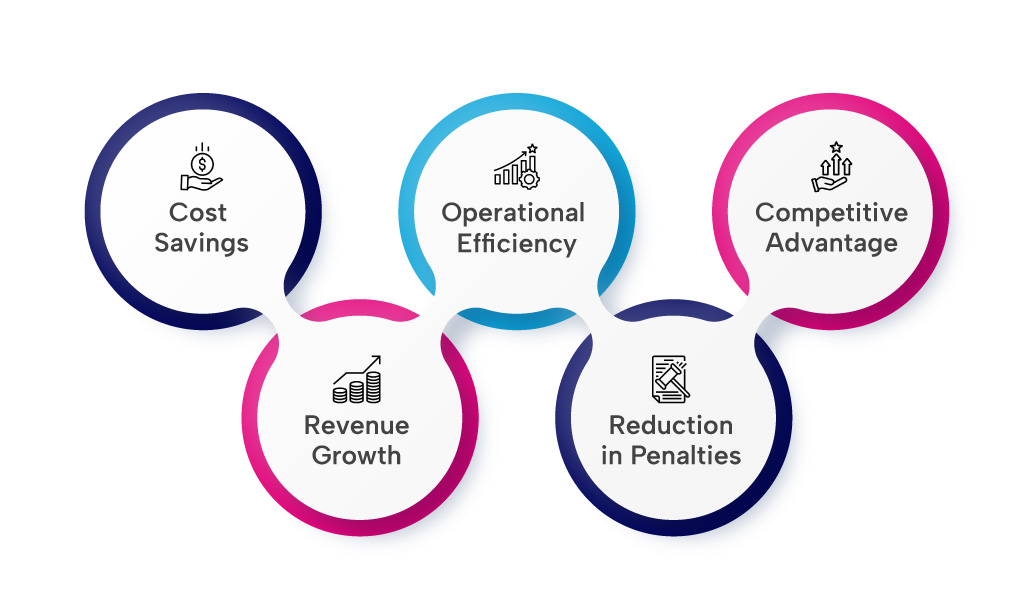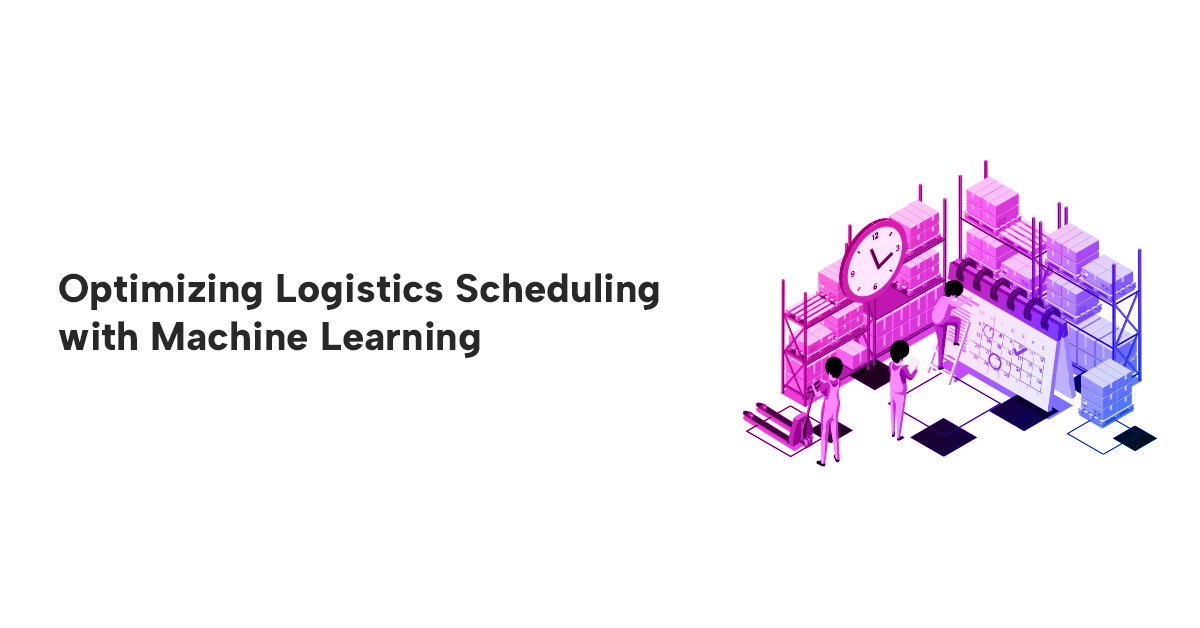Optimizing Logistics Scheduling with Machine Learning
Jul 14, 2023
Introduction
In this customer success story, we will explore how a leading transportation company revolutionized its logistics operations by harnessing the power of machine learning. By implementing advanced algorithms and predictive analytics, the company was able to optimize its scheduling process, improve efficiency, and ultimately provide exceptional customer experiences.
Company Background:
Our customer is a global logistics service provider with a vast network covering multiple cities and regions. With a fleet of vehicles and a diverse range of transportation services, they faced the challenge of efficiently scheduling and dispatching resources to meet customer demands while minimizing costs.
Challenges Faced
Before integrating machine learning into its logistics operations, our client faced several key challenges:
- Inefficient Resource Allocation: Manual scheduling processes often result in suboptimal resource allocation, leading to idle time for drivers and increased operational costs.
- Reactive Planning: Traditional planning methods were reactive, making it difficult to respond to unexpected events such as traffic congestion or last-minute customer requests in real time.
- Limited Visibility: The company needed more real-time visibility into its fleet's performance and could not proactively identify bottlenecks or areas for improvement.

Cloud Services
- Cloud Computing Platform: We leveraged Microsoft Azure to build and deploy their machine learning models. The cloud platform provided scalable computing resources, allowing them to process large volumes of data efficiently.
- Data Storage and Processing: We utilized cloud-based storage and processing services, such as ADX and Azure Blob Storage, to manage their vast dataset and enable real-time analytics. These services provide secure, scalable, and cost-effective storage solutions for their data.
- Serverless Computing: To handle the dynamic and unpredictable nature of logistics scheduling, We utilized the serverless computing services Azure Functions. Serverless computing allowed them to execute code responding to events, enabling real-time decision-making and efficient resource allocation.
- Containerization and Orchestration: The adoption of containerization technologies like Docker and container orchestration platforms like Kubernetes was key to the success. By containerizing their machine learning models and scheduling components, they achieved portability, scalability, and easier deployment across different environments.
- Real-time Data Streaming: To process and analyze real-time data, IoT Hub and Azure Event Hubs are cloud-native streaming services. These services enabled them to ingest and process streaming data from various sources, such as IoT sensors or live traffic feeds, allowing for real-time decision-making and dynamic scheduling adjustments.
- Managed Machine Learning Services: Our Client took advantage of managed machine learning services, Azure Machine Learning, to streamline the development and deployment of their machine learning models. These services provided pre-configured environments, automated model training, and deployment pipelines, reducing the time and effort required to implement and maintain the models.
- Monitoring and Logging: To ensure the performance and reliability of their logistics scheduling system, the cloud-native monitoring and logging service Azure Monitor was utilized for all telemetry. These services allowed them to track system metrics, monitor resource utilization, and detect anomalies or performance issues in real time.
Implementation of Machine Learning
Recognizing the potential for machine learning to revolutionize their operations, we partnered with an AI solutions provider to develop a custom logistics scheduling system. Here's how they utilized machine learning techniques:
- Data Integration: The company integrated various data sources, including historical transportation data, real-time traffic information, weather forecasts, and customer demand patterns. This comprehensive dataset served as the foundation for their machine-learning models.
- Predictive Analytics: By applying advanced algorithms, the machine learning system analyzes the integrated data to generate accurate predictions and insights. It could forecast demand, identify optimal routes, and estimate accurate travel times.
- Dynamic Scheduling: The machine learning system enabled dynamic scheduling adjustments with real-time data inputs and predictive capabilities. It could efficiently allocate resources, optimize routes, and adapt to changing conditions in real time.
- Continuous Learning: The system continuously learns from new data and user feedback, enhancing its accuracy. It could adapt to evolving patterns, uncover new optimization opportunities, and refine its recommendations.
Machine Learning Models Utilized
- Regression Models: Regression models were employed to predict travel times based on various factors such as historical data, traffic patterns, and weather conditions. These models helped estimate accurate arrival times and optimize route planning.
- Classification Models: Classification models were used to categorize different types of shipments based on their urgency, size, and specific requirements. This classification allowed Transportation Operations to allocate appropriate resources and prioritize deliveries accordingly.
- Clustering Models: Clustering models were utilized to group similar types of deliveries or customers together. By identifying clusters, we optimized their routing and scheduling by grouping deliveries that share common destinations or time windows, reducing the overall travel distance and improving efficiency.
- Reinforcement Learning Models: Reinforcement learning models were employed to make real-time dynamic scheduling decisions. These models continuously learned from the feedback received during the scheduling process and adjusted the scheduling policies, accordingly, optimizing resource allocation and adapting to changing conditions.
- Time Series Forecasting Models: Time series forecasting models were used to predict demand patterns and seasonal variations in transportation requirements. By analyzing historical data, these models helped anticipate fluctuations in demand and adjust their resources and schedules accordingly.
- Optimization Algorithms: Besides machine learning models, We utilized optimization algorithms to solve complex scheduling problems. These algorithms could handle constraints such as delivery time windows, vehicle capacities, and driver availability, ensuring that scheduling decisions were feasible and optimal.
Tangible Outcomes

- Cost Savings: We achieved substantial cost savings by optimizing resource allocation and reducing idle time. The machine learning system enabled them to minimize fuel consumption, maintenance expenses, and labor costs associated with inefficient scheduling. These cost savings amounted to $10.5 million annually.
- Revenue Growth: With improved efficiency and timely deliveries, Our client experienced a boost in customer satisfaction and retention. This led to an increase in customer referrals and new business opportunities. As a result, their annual revenue grew by 3.8%.
- Operational Efficiency: The machine learning system's ability to dynamically adjust schedules and optimize routes resulted in a 15% improvement in operational efficiency. This improvement allowed logistics to handle larger shipments without increasing their workforce or fleet size. The increased efficiency saved them approximately $1.8M in operational costs.
- Reduction in Penalties: Before implementing the machine learning system, Our Client occasionally incurred penalties due to delays or missed delivery windows. By accurately predicting travel times and dynamically adapting schedules, they significantly reduced the occurrence of penalties. This reduction resulted in an annual savings of $850K.
- Competitive Advantage: The successful implementation of machine learning technology in logistics scheduling provided a competitive edge in the market. They could offer superior customer experiences, including accurate ETAs and personalized services, which attracted new clients and helped them win contracts. This competitive advantage led to an estimated increase in market share of 2.1%.
Benefits
By integrating machine learning into its logistics operations, our client achieved remarkable outcomes:
- Enhanced Efficiency: The new scheduling system significantly improved resource allocation, minimizing idle time for drivers and reducing overall operational costs. It led to increased productivity and optimized vehicle utilization.
- Real-time Adaptability: The company could proactively respond to unexpected events with real-time data integration and predictive capabilities. They could reroute vehicles, adjust schedules, and ensure timely deliveries, even in the face of unforeseen circumstances.
- Improved Customer Experience: The optimized scheduling system enabled Transportation Operations to provide superior customer experiences. On-time deliveries, accurate ETAs, and personalized services contributed to increased customer satisfaction and loyalty.
- Data-Driven Insights: The machine learning system provided valuable insights into fleet performance, transportation patterns, and demand trends. This allowed logistics and scheduling to identify operational bottlenecks, optimize routes, and make data-driven decisions for future improvements.
Conclusion:
Implementing machine learning in logistics scheduling has brought tremendous benefits. By leveraging cloud-native services and deploying various machine-learning models, the company has significantly improved efficiency, cost savings, and customer satisfaction.
They can accurately forecast demand, optimize routes, and estimate travel times through data integration and predictive analytics. This dynamic scheduling approach enabled them to allocate resources effectively, adapt to changing conditions in real time, and minimize idle time, resulting in substantial cost savings of $10.5 million annually.
Furthermore, the machine learning models, such as regression, classification, clustering, reinforcement learning, and time series forecasting, provided valuable insights and decision-making capabilities. This empowered our clients to make data-driven decisions, identify operational bottlenecks, and optimize their scheduling processes.
The adoption of cloud-native services played a crucial role in the success of the implementation. Leveraging cloud computing platforms, data storage, serverless computing, containerization, real-time data streaming, managed machine learning services, and monitoring/logging services, We achieved scalability, flexibility, and cost-effectiveness in their logistics operations.
The tangible outcomes of the machine learning implementation included revenue growth, operational efficiency improvements, and penalty reduction. Additionally, the company gained a competitive advantage in the market thanks to superior customer experiences and increased market share.
In conclusion, by harnessing the power of machine learning and leveraging cloud-native services, Our customer has transformed its logistics scheduling operations. The enhanced efficiency, cost savings, improved customer experiences, and data-driven insights have solidified their position as an industry leader and set them on a path of continued success in the rapidly evolving transportation landscape.




